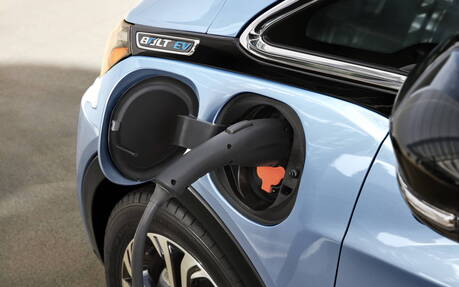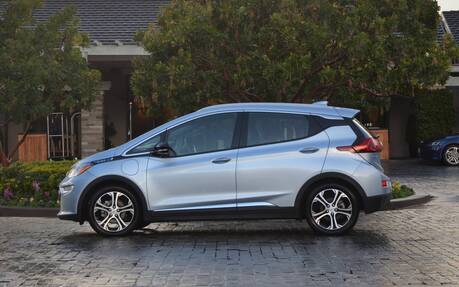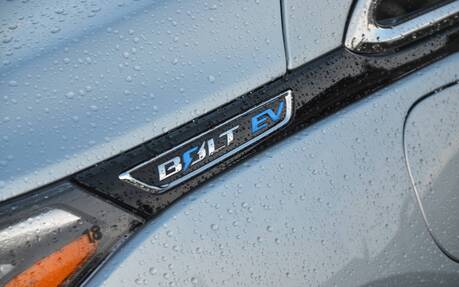Two More Chevy Bolt EVs Catch Fire, the Saga Continues
UPDATE, 07/23/2021--GM and LG Chem experts have identified the simultaneous presence of two rare manufacturing defects in the same battery cell as the root cause of battery fires in certain Bolt EV vehicles. GM says it will replace defective battery modules as part of a new recall but it is not clear how many are defective. Below is the original story.
Just like it seemed that General Motors had found a permanent fix for 2017-2019 Chevrolet Bolt EV cars equipped with potentially faulty high-voltage batteries that could lead to a fire, two more units burst into flames recently in the U.S. even after getting recalled and repaired.
- Also: Permanent Fix Found for Chevrolet Bolt EVs With Fire Risks
- Also: Chevrolet to Pay for Standard Installation of Level 2 Home Charging Outlet
As a result, the automaker is once again warning owners to park their Bolt EV outside and not leave it plugged in unattended overnight.
Last fall, GM decided to recall over 50,000 units in the U.S. and 7,983 in Canada to reprogram the hybrid propulsion control module in order to limit the battery charge to 90 percent.

Then, this spring, a special diagnostic tool was developed to identify potential battery anomalies and replace battery module assemblies as necessary. Chevy dealers also started to install advanced on-board diagnostic software that can detect potential issues related to changes in battery module performance before problems occur.
"Out of an abundance of caution, we are asking owners of 2017-2019 Chevrolet Bolt EVs who were part of the recall population to park their vehicles outdoors immediately after charging and not leave their vehicles charging overnight while we investigate these incidents," GM said in a statement.
Avoiding full battery charges is another temporary solution, but of course this makes it impossible to get the maximum available range with these Bolt EVs (383 kilometres).

GM says owners who haven't had the recall repairs done should still take their cars to dealers to get the fixes.
The aforementioned advanced diagnostic software will be offered to all other Bolt EV owners in the coming months. It is standard in the new 2022 Bolt EV and 2022 Bolt EUV.
Let’s hope GM’s latest investigation will solve the problem once and for all.
Watch: 2018 Chevrolet Bolt EV Test Drive
